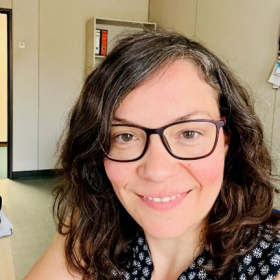

Soledad (Economist - Council of the EU)
“I joined the Council’s Directorate-General for Economic and Financial Affairs in 2016, and this is my second post here. In my first post I had the unique opportunity to be responsible for the negotiations on the Recovery and Resilience Facility, the main programme of NextGenerationEU, the post-pandemic recovery plan.
In my current post in the Budget and Cohesion Unit, I am in charge of the budget heading dealing with the Union’s external action, and as a result I was also fortunate enough to be responsible for the negotiations on the EUR 18bn macro-financial assistance package to Ukraine for 2023.
Before coming to the Council, I worked in DG FISMA at the Commission, and before that I worked at the European Parliament, where I had the chance to support the negotiations on the so-called six-pack and two-pack (the Stability and Growth Pact and the Macroeconomic Imbalances Procedure).
In sum, while I don’t work as a hardcore economist, my job does require the thinking, the knowledge and the type of analysis that an economist’s work does. Having a handle on the figures and being able to interpret them is always a valuable skill to bring to your work. And as you can see, you can switch institutions as and when it suits you, which also enriches your growth and your work – particularly, for example, during negotiations. I’m never bored!”
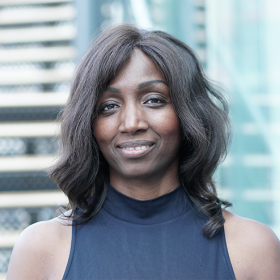
Adja (European Commission - Directorate General for Economic and Financial Affairs)
“Applying for EPSO’s competition for economists can be a great opportunity from many respects!
Hi, my name is Adja and I am a macroeconomist at the European Commission, DG ECFIN. I have a Ph.D. in applied international economics (major econometrics) from the University of Namur. Before joining the European Commission, I worked in the Federal Planning Bureau in Brussels.
Since 2019, I am working in the field of EU fiscal policy. I first spent some years in the unit in charge of the coordination of Member States’ surveillance in the context of the Stability and Growth Pact. Being in constant interaction with many units and colleagues across the DG, was a great experience, which definitely has developed both my practical knowledge on the application of the Pact, a cornerstone of the EU policy, and my leadership skills. It also widened my horizon as regards the different factors driving the EU fiscal policy and public debt developments.
As a result, I recently joined the unit responsible for monitoring and assessing the sustainability of EU public finances in relation to fiscal risks stemming, for instance, from ageing population and related issues (like pensions, health care and long-term care spending), green transition or banking sector. This is a very exciting job, involving a holistic approach to consider fiscal risks arising outside the realm of public finances stricto sensu, some of these risks being also part of the EU major challenges ahead.
So, what can you expect if you work for the European Commission?
- First, you will have the opportunities to deal with many challenges and responsibilities, that are linked to EU policies with a direct impact on Member States,
- Second, you will work with various talented and inspiring colleagues from different backgrounds, both cultural and professional ones.
- Finally, you will also have many occasions to be involved in a broad variety of topics ranging, for instance, from macroeconomic forecasts to the implementation of EU fiscal rules.
So just give it a try, have a look at the Notice of Competition and apply!”
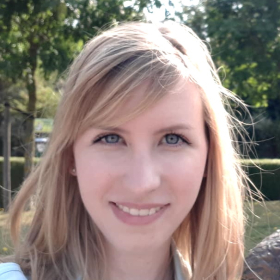
Krisztina (European Economic and Social Committee)
“I have been working for the European Economic and Social Committee (EESC) since 2016. I work at the Section for Economic and Monetary Union and Economic and Social Cohesion and within our unit, I first worked on policy issues related to the Capital Markets Union and for the past two years, I have been working on the economic policies and in particular, the Economic and Monetary Union.
Our institution is one of the consultative bodies of the Union. The members of the EESC represent the organised civil society of Europe and with the opinions they draft, the EESC feeds into the European policy-making process the views, concerns and recommendations of civil society. My job is to support the EESC members in writing opinions on topics related to the EU's economic policies. For my work, I have to be up-to-date about the economic policy developments in the EU, follow the progress on legislative files at the Commission, the Parliament and the Council and be aware of the relevant research in academia, think tanks and the position of civil society organisations. I also organise meetings, public hearings or conferences, and establishing contacts with relevant stakeholders. Every day, I feel like I am at the heart of European policy-making and of building a resilient, sustainable European economy. What I love about my job is its diversity and that it constantly challenges me to stay on top of my game.”
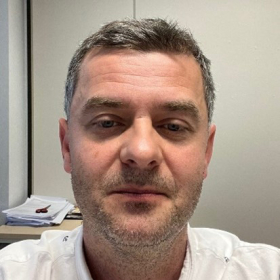
Victor (Council of the EU)
“What I like about my job is the exposure to the most interesting topics concerning the economy and financial markets in the EU and beyond.
I joined the Council in 2017 to work in the Financial Services Unit, dealing mostly with banking legislation. Then this year, I moved to my current unit. I provide support to the Presidency in preparing for discussions on specific topics at the Economic and Financial Affairs Council, especially in relation to Russia’s aggression against Ukraine and the coordination of working parties aimed at identifying ways to support Ukraine’s reconstruction. The work is demanding because ECOFIN ministers meet almost every month and Ukraine is always high on their agenda, but it is also wide-ranging and interesting.”
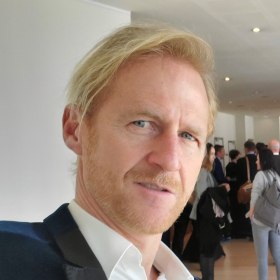
Gerald (European Economic and Social Committee)
“I am working since 2008 for the European Economic and Social Committee (EESC), for the Section for Economic and Monetary Union and Economic and Social Cohesion. In 2016, I passed a specialised EPSO competition for financial economics, and became an appointed official. My fields of work are on financial and capital markets and the budget of the European Union, but also issues related to strategic foresight.
In my job I work closely with the members of the EESC, that represent organised civil society, and that feed with their expertise into the EU´s policy making process. I give input in the process of drawing up opinions, organise hearings and conferences, and write speeches. It is of paramount importance to stay up to date to policy developments. To this end, I liaise closely with colleagues from the European Commission, but also with Parliament, think tanks, and civil society interest groups. I enjoy working in a multicultural working environment, with highly competent and interesting colleagues in my unit and the organisation. My job gives me insight to a range of topical policy matters that fit with my educational background.”
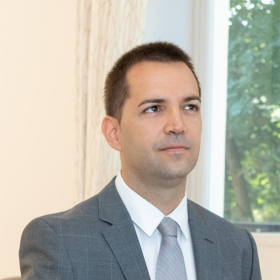
Aimar (Council of the EU)
“Working in the Budget and Cohesion Unit in the General Secretariat of the Council is not all about crazy Excel tables and getting caught up in figures. It is actually a very exciting policy post! People may think that budgetary affairs are boring, but the opposite is true. We work in a very political environment where the real priorities of the EU get decided: where the EU spends the money is what really matters, and we are right at the heart of that interesting and (sometimes) exhilarating decision-making process!”
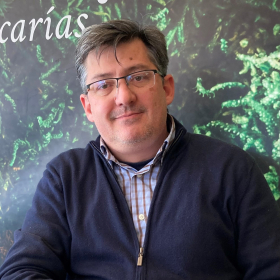
Nestor (Joint Research Center)
“I am currently leading a team of economists providing scientific support for digital policy initiatives. Working for the European Commission has been so far an incredible experience, both personally and professionally. From a professional perspective, it has been a real challenging intellectual journey, facing difficult requests that require a combination of analytical and problem-solving skills. However, even if these are relevant, it is necessary to complement them with soft skills such as collaboration, teamwork, communication and resilience. Personally, I’ve had the opportunity to meet some of the most interesting people I have ever met: intelligent, responsible, caring, amusing… All that in a multicultural environment where you can learn and enjoy every day, while you contribute to the greater good. Can you imagine a better place to work?”
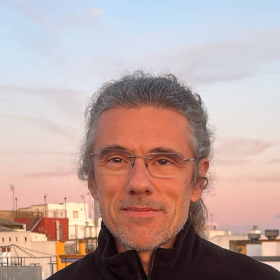
Fidel (Joint Research Centre)
“I have been working in the Joint Research Centre (JRC) in Seville for almost eight years. Currently I coordinate the maintenance and update of EUROMOD, a model that allows estimating the impact on households of reforms of taxes and benefits in EU Member States. Although I started as a contract agent, two years ago I managed to pass an AD6 competition and, very luckily, continue working on my previous project.
Before coming to the Commission, I was an associate professor in the University of Vigo (Galicia, Spain). Although I liked my work, I always felt the need of working closer to the policy world, and the JRC represented a unique opportunity to work at the crossroads of research and policy-making.”
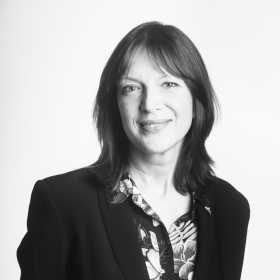
Agnieszka (Council of the EU)
“My name is Agnieszka Ruminska, I am Polish and I have been working for the Council since 2010. I was attracted to join this Institution because of the role it plays at the EU level - the Council is an essential EU decision-maker. Discovering the mechanics of the Member States’ negotiations and working every 6 months with different bosses (rotating Presidencies) has been for me an amazing experience! I started in the unit dealing with the EU General Budget and the Financial Regulation. The EU budget is like a lens where all the EU actions and programs come together - in numbers. And when it comes to the taxpayers’ money – the negotiations can be very tough! Not only among the 27 Member States as the second arm of the Budgetary Authority, the European Parliament, must agree on the numbers too. After a lengthy discussion that can last until late at night – you learn the art of compromising.
After 7 years I moved to completely different field of work: banking and financial services, which opened for me a door to a world of finance. The legislative activity at that time focused mainly on handling the legacy of the financial crisis and making sure our banks remain safe.
Currently I still work in finance – but relatively far from the political activity - I am responsible for the preparation and oversight of the implementation of the Council and the European Council budget. Although political negotiations are not part of my job anymore, I still feel responsible for making sure that the conditions for an agreement are there, and that discussions among Member States are taking place in an optimal and pleasant working environment.”
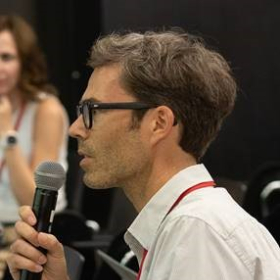
Robert (Joint Research Centre)
“My name is Robert and I am working in the Joint Research Centre (known internally as ‘JRC’), where I lead a small team working on Applied Environmental Economics. With a view on the EU Green Deal, we support the development of Circular Economy policies, comparing different options and providing ex-ante assessments on their market and non-market impacts. I love what I am doing because the topics keep changing and always offer new learning opportunities, and the exact same can be said about my colleagues and the working environment! If you – like me – want a job ‘with a purpose’ and one that is intellectually and personally stimulating, then you should apply!”
Katharina (European Commission - Directorate General for Economic and Financial Affairs)
“Hello, my name is Katharina and since 2018 I have been working as an Economic Analyst at the European Commission’s Directorate General for Economic and Financial Affairs (DG ECFIN). Currently, I am coordinating the implementation of the Recovery and Resilience Plans in Member States. It is an exciting work to contribute to the implementation of NextGenerationEU, with the biggest spending programme of the European Union so far.
I am a trained economist and before joining the European Commission as an official, I worked in the public administration in Austria and later as Seconded National Expert and Contract Agent in the European Commission’s Directorate General for Employment, Social Affairs & Inclusion (DG EMPL) on the implementation of the European Semester and the European Social Fund.
What makes the work at the European Commission so stimulating and motivating is that I can make a difference by contributing to policy-making with my analytical skills and by creating solutions for European citizens. On top this, I very much enjoy working in such a dynamic and international environment.
Check out the EPSO website and apply!”
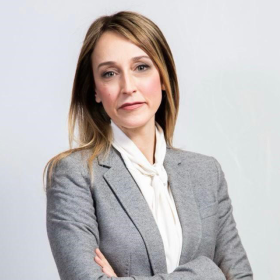
Daria (Joint Research Centre)
“My career as an economist at the European Commission started at the Joint Research Centre, back in 2010, as a regional and innovation economist. In 2013, I joined the Directorate-General for Economic and Financial Affairs, where I oversaw the Research and Innovation dossier and of research activities in the field of structural reforms and contributed to the European Semester policy cycle. In 2016, I moved to Rome as European Semester Officer at the Representation of the European Commission to Italy, a bridge between Brussels and Italian National Stakeholders. In 2019, I took a leave and worked as Head of European Affairs at Cassa Depositi e Prestiti, the Italian National Promotional Bank. In 2022, I re-joined the Joint Research Centre. Here, I am the team leader of the European Semester Project and I coordinate JRC’s scientific contribution to the European Commission's monitoring of Member States’ economic and fiscal reforms.
All this to say that my career path shows how heterogeneous and interesting the career of an economist at the European Commission can be, and it starts by applying!”
Mona (European Commission - Directorate General for Economic and Financial Affairs)
“I first crossed the door of a European Commission building back in 2005, as a visiting young economic policy expert from Greece. EU economic policies have been in the centre of my professional activities, and over time, working for the EU has become one of my central professional targets. I passed the EPSO competition in 2018 and now I work as an economic analyst in DG ECFIN. My main responsibility is the economic surveillance of Member-States and in particular their macroeconomic and budgetary performance and compliance with the commonly agreed rules.
Working for the European Commission is demanding but also a unique experience. It is not only the friendly and empowering work environment but also the fact that you interact and work with a diversified crowd of very competent professionals on a daily basis. It is above all the inspiration from being part of an institution that materialises the vision of peace and prosperity in Europe. It is also the motivation from working in the interest of more than 400 million people and the challenge of making the life of all of us a little bit better through our work.”
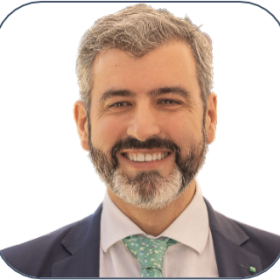
Antonio (Economic analyst/modeller - Joint Research Centre)
“Since 2021, I’ve worked as an economic analyst/modeller at the Fiscal Policy Analysis unit of the Joint Research Centre (JRC), the scientific service of the European Commission. I lead the development and usage of models to analyse consumption taxes (incl. ‘green’ ones). My team provides scientific evidence to support Commission policies like the Carbon Border Adjustment Mechanism, the Review of the Energy Taxation Directive or the European Semester, the macroeconomic surveillance framework of member states, during which latest cycle, we assessed the measures supporting households against the 2022 inflation shock.
I joined the Commission in 2012 and studied the impact on jobs and the environment of global value chains, productivity, and the digital economy. I have provided scientific background for Commission official policy documents in Corporate Taxation, International Trade and Internal Market, Productivity, Energy or Emissions. I often represent the JRC in groups and task forces of the Commission, G20 and UN.
Before joining the Commission, I was a visiting researcher at Tilburg University (the Netherlands). When doing a European PhD in Economics, I worked for the Andalusian Regional Statistical Institute and the Spanish Trade and Economic Office (Embassy of Spain in Chile). I lectured Quantitative Methods for more than ten years at Pablo de Olavide University (Seville, Spain), where I am Associate Professor on special leave to serve the Union.”

